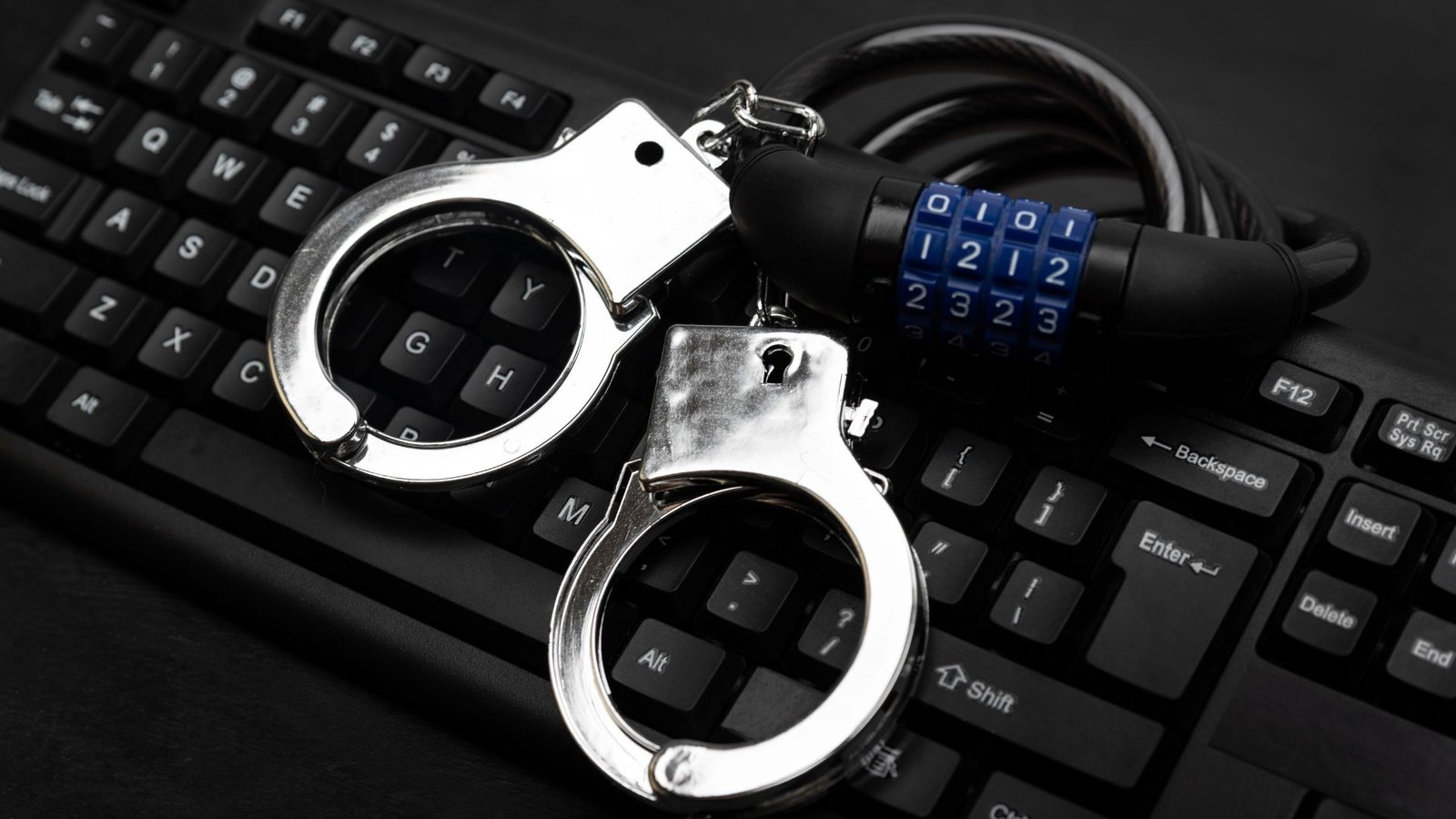On this page you will read detailed information about Legal Consequences for Unauthorized Computer Access.
As technology becomes increasingly integrated into nearly every aspect of life, society has become progressively reliant on computer systems and digital infrastructure. However, this dependence also brings new risks and vulnerabilities. Unauthorized access and interference with computer systems can have serious legal consequences, as outlined in laws like the Computer Fraud and Abuse Act. If you access a computer system or network without proper authorization, you may face both civil and criminal penalties.
Definition of Unauthorized Computer Access
Unauthorized access of computer systems, known as hacking, is illegal. According to the U.S. Department of Justice, “unauthorized access” means accessing a computer without permission. This includes:
Gaining access to a network or computer system through hacking
Hacking refers to illegally gaining access to a computer network or system by circumventing access controls like passwords and firewalls. Hackers break into systems to steal data, install malware, or cause disruption.
Using stolen login credentials to access an account
If someone obtains another person’s username and password through phishing, social engineering, or other means and uses those credentials to access the account, it is considered unauthorized access. The account holder did not grant permission for the access.
Sharing login information with an unauthorized user
Even if you have legitimate access to a system, sharing your login credentials with another person who does not have approved access is illegal. That individual is then able to access the system without consent.
Trespassing on a computer system
Some computer systems have restrictions on who can access them. If you gain access to such a system through any means, including hacking, stolen credentials, or shared logins, that is considered trespassing and a form of unauthorized access.
The penalties for unauthorized access include prison time, large fines, or both. Harsher punishment is reserved for violations involving sensitive data, malicious intent, or financial gain. Organizations also commonly pursue civil lawsuits against perpetrators to recover damages.
In summary, any access of a computer system without the explicit permission of the account owner or system administrator is considered unauthorized access and illegal. Take measures to protect your own accounts and systems from unauthorized access, and do not attempt to access any systems without consent.
Overview of Relevant Laws
There are several laws that prohibit unauthorized access of computer systems and data. Understanding the legal consequences of hacking and cybercrimes can help individuals and organizations better protect their systems and digital assets.
The Computer Fraud and Abuse Act (CFAA)
The CFAA, passed in 1986, prohibits accessing a computer without authorization or in excess of authorization. It applies to government and financial institution computers, as well as those used in interstate commerce. Violations of the CFAA can result in both criminal and civil penalties, including imprisonment and fines.
The Cybersecurity Information Sharing Act (CISA)
CISA, enacted in 2015, aims to improve cybersecurity in the U.S. through increased information sharing between the private sector and government. It provides legal protections for entities that share cyber threat indicators with each other. However, it also expands the government’s authority to monitor and counter cyber threats.
In the previous post, we had shared information about Best Practices For IoT Energy Management, so read that post also.
State Laws
Most states have also enacted their own laws against unauthorized access and hacking. These include trespassing statutes, identity theft laws, and other cybercrime laws. Penalties under state laws vary but often include jail time, community service, probation, and monetary damages.
To avoid legal trouble, individuals and organizations should implement strong security measures to protect their digital systems and data. Establishing clear policies on authorized and unauthorized access, conducting regular risk assessments, using protective software like firewalls and encryption, and staying up-to-date with the latest cyber threats can all help reduce the risks of hacking and its consequences. If a cyberattack still occurs, consulting with legal counsel regarding reporting obligations and initiating an investigation may be prudent steps to take.
Overall, there are significant legal risks to unauthorized access of computers and networks. Understanding relevant laws and taking proactive steps to strengthen security and cyber resilience is critical for any entity operating in today’s digital world.
Potential Criminal Penalties
Unauthorized access of computer systems, also known as hacking, is illegal under state and federal law. If convicted of unauthorized computer access, you may face both civil and criminal penalties.
Criminal penalties for hacking include both felony and misdemeanor charges, depending on the nature of the offense. More serious violations are typically charged as felonies, while less severe infractions may be charged as misdemeanors. Felony charges can result in years of imprisonment and significant fines. For example, under the Computer Fraud and Abuse Act (CFAA), gaining unauthorized access to a government computer system is punishable by up to 10 years in prison and a fine of up to $250,000. Charges for hacking a private computer system can also lead to a lengthy prison sentences and sizable fines.
In addition to imprisonment and fines, those convicted of hacking face other consequences. A felony conviction results in losing certain civil rights like voting, holding public office, and owning firearms. A criminal record can also make finding employment more difficult. Probation, community service, and restitution may be required in addition to or in lieu of jail time. Those with a history of unauthorized access may be prohibited from using computers or the internet for a period of time.
To avoid the severe criminal penalties associated with hacking, do not access any computer systems or accounts without permission. Always obtain consent from system owners before attempting to access, modify, or delete data and software. Be aware that ignorance of laws and policies prohibiting unauthorized access does not constitute a legal defense.
Possible Civil Lawsuits and Damages
As the victim of unauthorized access to your computer system, you may have grounds to pursue civil lawsuits and damages against the perpetrator.
Loss of Data or Corruption
If the hacking incident resulted in the loss, theft, or corruption of your digital data, files or IT systems, you may be able to recover the costs to restore and recover that data. This could include expenditures for forensic investigation, system repair, and data recovery services. You will need well-documented records of what was accessed, stolen, deleted or corrupted to substantiate your claim.
Loss of Productivity and Revenue
Any disruption to your business operations could warrant compensation for loss of productivity and sales. If the hacking attack crippled your systems or network for a period of time, you may be able to recoup lost employee wages, operational costs, and revenue. You must be able to show a direct link between the unauthorized access and the losses incurred.
Damage to Reputation and Goodwill
If sensitive data like customer information was compromised, your company’s reputation and goodwill could suffer. This may justify damages for injury to business reputation and loss of customer trust and loyalty. The amount will depend on the severity and duration of damage, and must be supported by a measurable loss in sales, partnerships, or other business relationships.
Punitive Damages
In some cases, punitive damages may be awarded to punish the hacker for malicious or egregious behavior, and to deter others from similar harmful cybercrimes. Punitive damages are more likely when the unauthorized access was clearly intentional, and not just an accident. However, punitive damages are not awarded in all states and may be difficult to obtain.
While civil lawsuits can be an avenue for restitution from hacking crimes, they require significant time and money to pursue. Many victims are not able to identify the perpetrator or lack sufficient evidence to build a strong case. However, for serious incidents that cause major damage, civil litigation may be the only option to recover losses and hold the hackers accountable. Carefully documenting the unauthorized access and preserving related evidence can help support your position should you elect to take legal action.
Recommendations for Avoiding Legal Trouble
To avoid legal trouble related to unauthorized computer access, it is recommended that individuals:
Follow Appropriate Authorization Procedures
Obtain proper authorization before accessing any computer system. This means requesting access from the system owner or administrator and waiting for explicit permission before proceeding. Do not access systems without consent or by exploiting security vulnerabilities.
Avoid Sharing Account Credentials
Never share account logins, passwords, security keys or other access credentials with unauthorized individuals. Account credentials are intended for individual use only and sharing them could enable illegal access.
Be Cautious When Testing Security
If you are a cybersecurity professional testing systems for vulnerabilities, be extremely careful to do so only with proper authorization and in a controlled manner. Unauthorized vulnerability scanning or penetration testing is illegal.
Do Not Distribute Malware or Hacking Tools
Do not create, distribute or make available any malware, hacking tools, account cracking tools or other software intended to enable unauthorized computer access. Even if such tools are not used directly, distributing them is illegal.
Do Not Access Sensitive Data Without Authorization
Only access computer systems and data that you have explicit authorization and consent to access. Do not view, download, share or otherwise access personally identifiable information, financial data, trade secrets or other sensitive data without permission.
Following these recommendations can help individuals avoid legal punishment for computer crimes like hacking, cyberstalking, identity theft and fraud. Unauthorized computer access is illegal, regardless of intentions or outcomes, so it is critical to adhere to proper authorization procedures and exercise caution. By respecting system security and user privacy, legal trouble can typically be avoided.
Conclusion
As you have seen, unauthorized access of computer systems can carry severe legal punishments. Whether motivated by curiosity, profit, or malicious intent, hacking violates laws put in place to protect individuals and organizations. While penalties vary significantly based on factors like damage caused and criminal history, convictions for computer crimes often result in hefty fines and even prison time. With cyber threats on the rise, law enforcement has made such cases a priority and continues to push for stronger laws and enforcement mechanisms. Given the legal consequences at stake, unauthorized access of computers is never worth the risk. Individuals would be wise to find legal and ethical ways to satisfy their curiosity or achieve their goals.
Disclaimer
The information and services on this website are not intended to and shall not be used as legal advice. You should consult a Legal Professional for any legal or solicited advice. While we have good faith and our own independent research to every information listed on the website and do our best to ensure that the data provided is accurate. However, we do not guarantee the information provided is accurate and make no representation or warranty of any kind, express or implied, regarding the accuracy, adequacy, validity, reliability, availability, or completeness of any information on the Site. UNDER NO CIRCUMSTANCES SHALL WE HAVE ANY LIABILITY TO YOU FOR ANY LOSS OR DAMAGE OF ANY KIND INCURRED AS A RESULT OR RELIANCE ON ANY INFORMATION PROVIDED ON THE SITE. YOUR USE OF THE SITE AND YOUR RELIANCE ON ANY INFORMATION ON THE SITE IS SOLELY AT YOUR OWN RISK. Comments on this website are the sole responsibility of their writers so the accuracy, completeness, veracity, honesty, factuality and politeness of comments are not guaranteed.
So friends, today we talked about Legal Consequences for Unauthorized Computer Access, hope you liked our post.
If you liked the information about Legal Consequences for Unauthorized Computer Access, then definitely share this article with your friends.








